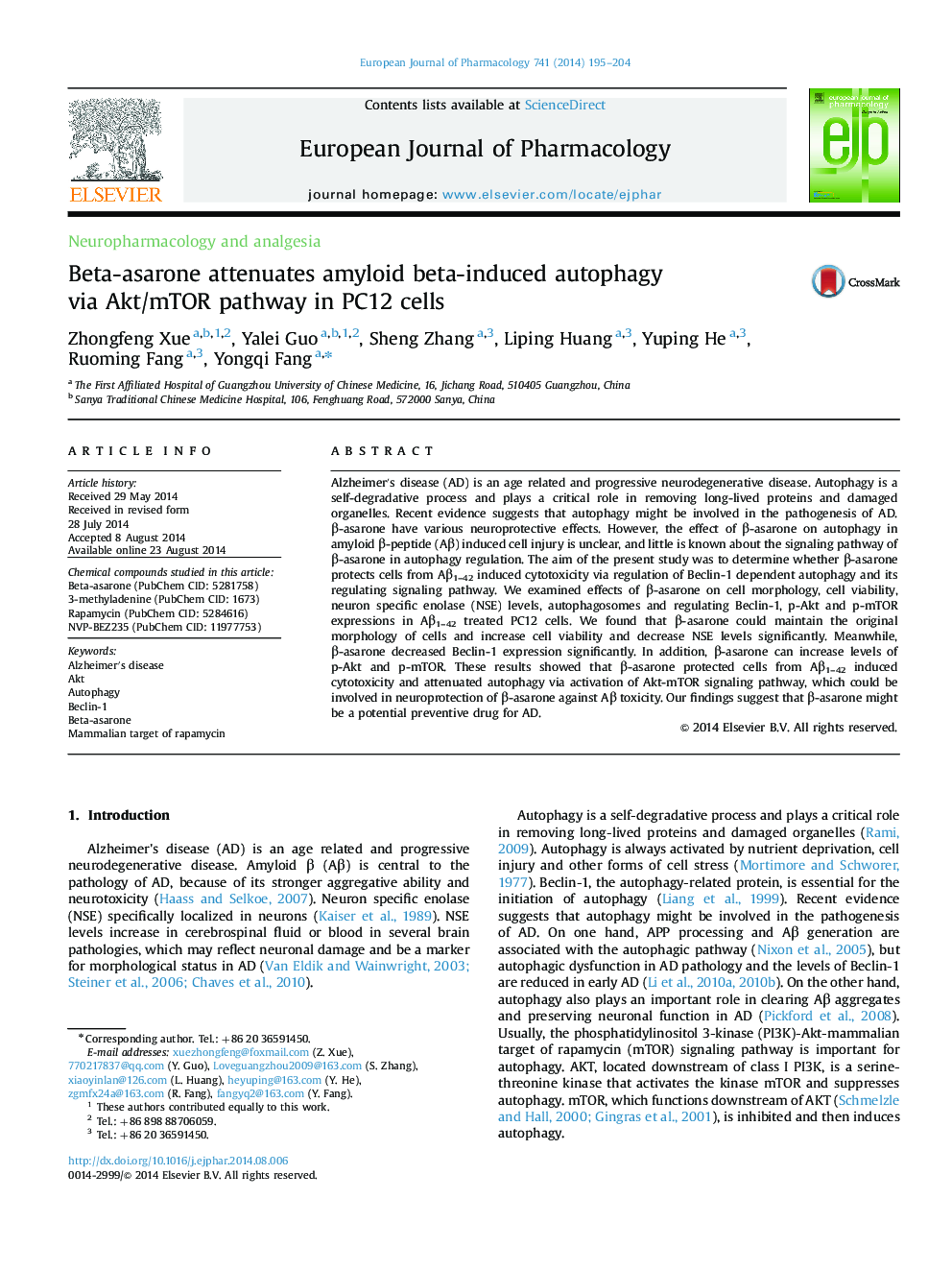| Article ID | Journal | Published Year | Pages | File Type |
|---|---|---|---|---|
| 5827626 | European Journal of Pharmacology | 2014 | 10 Pages |
Alzheimerâ²s disease (AD) is an age related and progressive neurodegenerative disease. Autophagy is a self-degradative process and plays a critical role in removing long-lived proteins and damaged organelles. Recent evidence suggests that autophagy might be involved in the pathogenesis of AD. β-asarone have various neuroprotective effects. However, the effect of β-asarone on autophagy in amyloid β-peptide (Aβ) induced cell injury is unclear, and little is known about the signaling pathway of β-asarone in autophagy regulation. The aim of the present study was to determine whether β-asarone protects cells from Aβ1-42 induced cytotoxicity via regulation of Beclin-1 dependent autophagy and its regulating signaling pathway. We examined effects of β-asarone on cell morphology, cell viability, neuron specific enolase (NSE) levels, autophagosomes and regulating Beclin-1, p-Akt and p-mTOR expressions in Aβ1-42 treated PC12 cells. We found that β-asarone could maintain the original morphology of cells and increase cell viability and decrease NSE levels significantly. Meanwhile, β-asarone decreased Beclin-1 expression significantly. In addition, β-asarone can increase levels of p-Akt and p-mTOR. These results showed that β-asarone protected cells from Aβ1-42 induced cytotoxicity and attenuated autophagy via activation of Akt-mTOR signaling pathway, which could be involved in neuroprotection of β-asarone against Aβ toxicity. Our findings suggest that β-asarone might be a potential preventive drug for AD.
Graphical abstractDownload high-res image (106KB)Download full-size image
